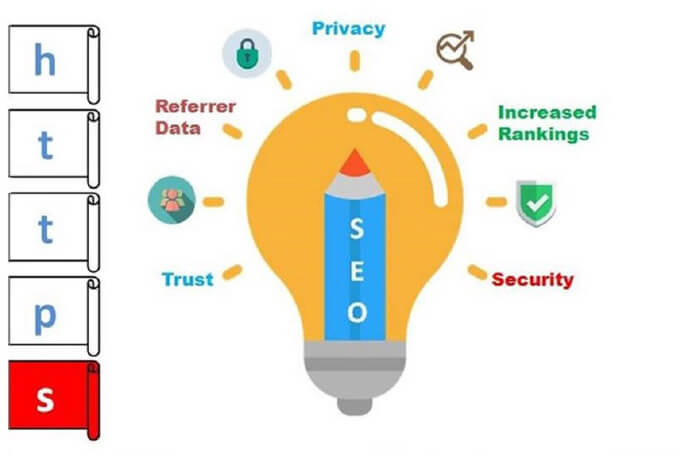For some time now, Google has been urging websites to make the change in the title, among other things by giving priority to pages that use https in their rankings. So it is no coincidence that the number of websites that switch from http to https is constantly increasing. In our weekly article, we briefly summarize why the transition is justified and worth it. We also give tips on what to pay attention to during the transition.
Tartalomjegyzék
- What is HTTPS?
- Why is HTTPS useful for search engine optimization?
- Why is HTTPS good for visitors?
- The Google Chrome browser indicates the absence of HTTPS to users
- A Google algorithm update is likely
- Who can benefit from HTTPS?
- Tips and tricks for moving to HTTPS
- The most important things to do during the HTTPS transition
What is HTTPS?
“When you conduct business online, there may be times when customers are asked to provide their details – for example, to sign up for newsletters and place orders. Customer data is protected by SSL (Secure Sockets Layer) technology, which is used to encrypt data transferred between the web browser and the web server. Websites secured using SSL have the prefix https: instead of http:, which is why many people refer to SSL as "HTTPS".
The former definition can be found in Google's help, and in our opinion, this definition is the most understandable.

Why is HTTPS useful for search engine optimization?
https is a quality signal. If two websites are identical in all other respects, then the website that uses https will be ranked higher on the Google search results page. The reason for this is that Google always considers serving its users as a priority, and therefore constantly changes its algorithm. This creates a better user experience and, in the case of https, a more secure one at the same time.

Why is HTTPS good for visitors?
SSL encrypts user data so it cannot fall into unauthorized hands. This is especially important if you receive sensitive user data, such as bank card data, but it is enough if you can only access your site with a password. However, Google recommends the use of https for all websites. And users have more confidence in a website that uses https.
The Google Chrome browser indicates the absence of HTTPS to users
As of January, version 56 of Google Chrome will display an "not secure" sign on all websites that have a username-password login, or that may transmit bank card data while using simple http and not https. Users will obviously not take it as a good name if your website is not secure.

A Google algorithm update is likely
Google will probably make another algorithm update soon. The reason for this is that while previously it would have been pointless to delve into the algorithm due to the small number of sites using https, it may now be worthwhile to reward or penalize sites in connection with the http-https switch. After all, their ratio is starting to reach the level that the disappearance of http pages from the first places of the search results pages will not have a detrimental effect on the quality. This is all the more likely because the major sites have already made the switch. If only for this reason, it would be worthwhile for everyone to think about whether the time has come for them to switch.
Who can benefit from HTTPS?
The use of https is beneficial for all websites, as it is not only the transmission of sensitive data (user data, login information, billing data) that can pose a security problem. It can also be a problem when the traffic takes place via http and on an unsecured connection, then anyone can observe our Internet traffic and get to know our data. If someone gets into the system, they will be able to record all our activities on the Internet, so they will be aware of which websites we visit, which articles we read, all of our browsing history that did not take place via https is available to them. https, on the other hand, can be used on any website, be it a blog or an online store.
Tips and tricks for moving to HTTPS
The most common error during the transition from http to https is that https is not set as the default, so it runs parallel to the http page version. This causes Google to detect "duplicate content" during indexing. The solution is not complicated, you have to make sure that the URLs of the http version are all redirected to https. However, you should be careful to use a 301 redirect, and not a 302, which means a temporary redirect!
By the way, website analyzes tend to shed light on these kinds of problems, so it's worth having your site audited by appropriate experts from time to time.
The most important things to do during the HTTPS transition
- Buy an SSL certificate
- Install the purchased certificate (or ask your web developer)
- Make sure you've added your https version to Google Search Console, and that both www and non-www versions exist
- You have redirected the http URLs to the https version with a 301 redirect
- Make sure that internal links point to the https version of the website
- Verify that the XML sitemap includes the https URL versions
- All external links that you have influence on should point to the https URL




